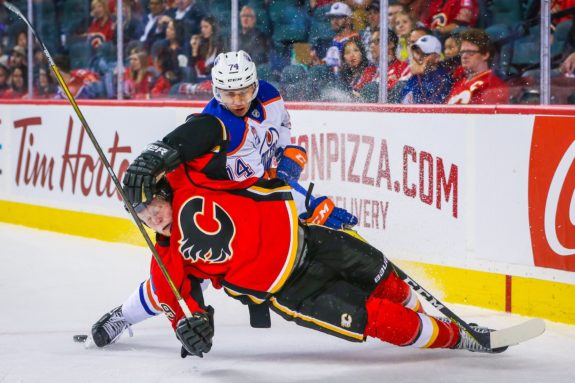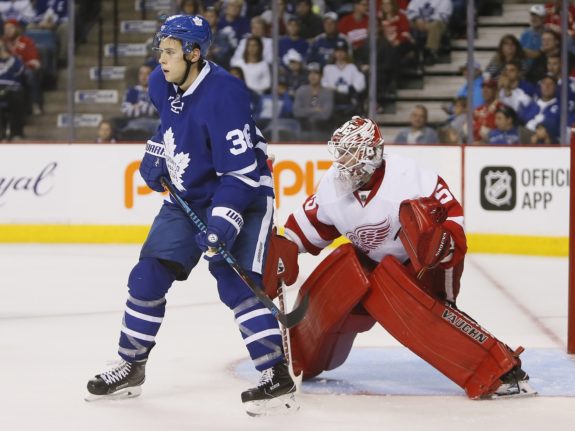It’s admittedly the smallest of trades that will almost certainly have zero impact on the Montreal Canadiens roster this upcoming season. Still, the trade that saw the Habs acquire Hunter Shinkaruk for Kerby Rychel could represent more of a far-reaching shift in philosophy for the better within the organization. Emphasis on the “could.”
Shinkaruk vs. Rychel
To be clear, Shinkaruk isn’t so much an upgrade over Rychel as the trade-and-sign is a lateral move. Technically, with Rychel having been selected five picks earlier in the first round of the 2013 NHL Entry Draft, it might even be a downgrade. Regardless, the move itself is inconsequential. It’s the bigger picture at which you may want to look.
Both players are waiver-eligible and fringe NHLers. Rychel, who had yet to re-sign with the Habs, would have been hard-pressed to make the Habs out of training camp. It would have meant him earning a roster spot at the expense of the likes of Matthew Peca or Nikita Scherbak, which wasn’t going to happen. The same is true of Shinkaruk.

Considering the size and reported grit discrepancy between the two (Rychel is listed at 6-foot-1, 207 pounds; Shinkaruk at 5-foot-11, 180 pounds), Rychel may have even had more of a shot than Shinkaruk does to earn a bottom-six role. That’s all that would have been left.
That may even be true of a top-six spot, however unlikely it is either of them end up earning one from here on out. Rychel has 14 points in 41 NHL games, including two in four games with the Habs last year after having been acquired in the Tomas Plekanec trade. Shinkaruk has just four in 15 up to this point in his career.
If it’s any consolation to concerned Habs fans, Shinkaruk has earned the better American Hockey League season between the two, scoring 51 points in 62 games in 2015-16. No need to worry though, as Rychel is about to join his fourth NHL team already. The Habs will be Shinkaruk’s third. Obviously, neither has established themselves as an NHL regular. It’s unlikely they will, hence the air of mystery surrounding the move.
Bigger Isn’t Necessarily Better
Giving up a bigger player with better numbers is a curious decision by Canadiens general manager Marc Bergevin. If one were to overanalyze and look deeper, it could signify an end of an era within the organization, where size no longer dictates the inherent value of a player…
…That or the Habs simply wanted more organizational depth down the middle, with Shinkaruk listed as being able to play each of the three forward positions, while Rychel is a left-winger. That’s probably the most logical explanation for the move.

It still doesn’t take away from the fact that, without a gun to their heads, the Habs are giving up the bigger forward, with more NHL success, however slight, to his name. At the end of the day, it’s far from a seismic shift in philosophy. That’s especially true as the Habs were last significantly impacted by said philosophy when they picked Michael McCarron over fellow-right-winger Ryan Hartman, coincidentally at the same 2013 draft.
It is nonetheless a move in the right direction for the new NHL, where speed and mobility is emphasized to a larger degree. That isn’t to say size is bad, but given a choice between big and fast, all else being equal, you choose fast. And all else is pretty much equal in this trade.
As such, it amounts to little more than a baby step in that right direction, considering both are 23-year-olds who may never even make the NHL on a permanent basis. It’s nevertheless clear the Habs need a Shinkaruk more than a Rychel in this day and age, even if it’s not this particular one.